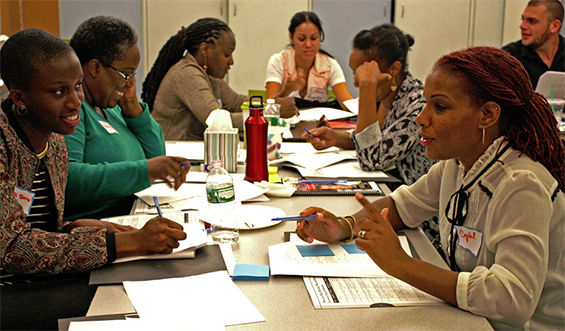
New research from Brown University has taken a closer look at the importance of the role teachers play in affecting student achievement and other non-cognitive skills that help students succeed later in life — but admits that we don’t know how much.
The paper, “Teaching for Tomorrow’s Economy? Teacher Effects on Complex Cognitive Skills and Social-Emotional Competencies,” notes that “the degree to which teachers are developing students’ abilities to apply knowledge in new contexts, learn on the job, and solve unstructured tasks through a combination of creativity, adaptability, and sustained effort remains an open question.”
Researchers say this is due to teacher evaluations being largely dependent on student test scores. Doing so does not allow for an adequate picture of how these teachers are affecting student performance on cognitive measures needed to succeed in today’s workforce, they say.
Six school districts were examined for the study, with researchers administering two achievement tests with open-ended questions designed to measure critical thinking skills and problem-solving skills on a number of open-ended tasks. Data from the results of these exams was then used to determine how much teachers influenced a student’s “grit,” or non-cognitive based personality traits related to an increase in motivation, and “growth mindset,” or holding the belief that working hard results in improved abilities.
According to the findings, teachers do hold an influence over a number of skills, including effort and determination, that are developed by their students. However, teachers whose students attain higher test scores are not necessarily the same teachers that succeed at improving student attendance or happiness.
This sort of research has been conducted for a number of years, consistently showing that teachers do matter and some are better at improving student achievement than others. Separate research from Economist James Heckman found skills unrelated to academics can influence the amount of money students will make later in life, how long they continue with their education, and whether or not they will use drugs or become pregnant while in school.
The research also suggests that teachers who are considered to be “good” are not necessarily good across all disciplines.
“It is certainly true that on average a teacher who raises test scores by a lot will tend to raise the non-cognitive factor to some extent … But it is not true that every teacher who raises the non-cognitive factor raises test scores and vice versa — far from [it],” Jackson, the Northwestern professor who studied North Carolina ninth-graders, said in an interview.
Researchers stress the importance of considering the findings on non-cognitive tasks into account when lawmakers develop policy such as school accountability and teacher evaluation systems. This has caused policymakers in a number of states to rework teacher evaluations to include some form of student achievement.
Matt Barnum for The Seventy-Four writes that continued research on the topic is especially important considering that the new federal education law requires states to rank schools and teachers using measures other than test scores. Because it is left up to individual states to determine which measures to use, Barnum says it is important to keep track of what is working and what is not.




